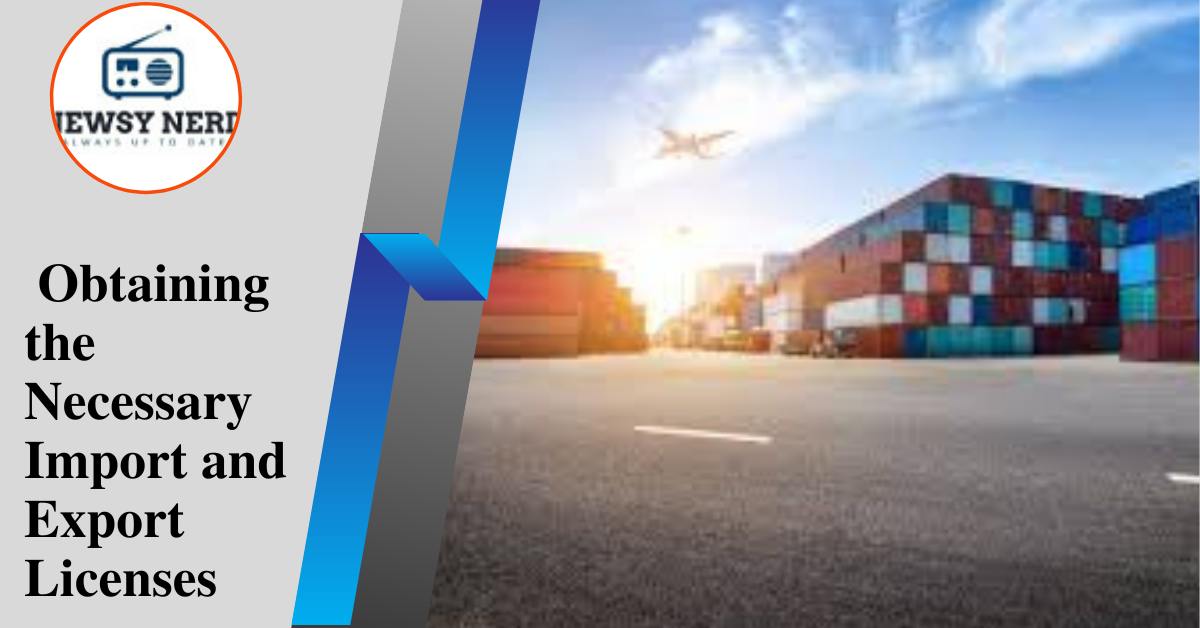Establishing an import export business in Pakistan that connects local products with global markets can be extremely successful. The intricacies of international trade can be effectively navigated by entrepreneurs who are aware of the necessary stages and requirements involved in this process.
By linking local goods with international markets, establishing an import export business in Pakistan can lead to profitable prospects. Entrepreneurs that are interested in this area should educate themselves on the essential procedures and prerequisites for conducting business internationally. Stay up-to-date on the latest developments by regularly checking Newsynerd, especially if staying informed is essential to you.
This includes building trustworthy supply chains, acquiring required licenses and permits, doing market research to find potential items and target consumers, and adhering to documentation and customs requirements. An import-export firm offers enormous potential for entrepreneurs looking to enter into the worldwide marketplace and earn from profitable trade endeavors because of Pakistan’s strategic position, wide choice of products, and expanding international trade network.
1. Conducting Market Research
Before launching an import business in Pakistan, a thorough market analysis must be done. One step in this process is identifying products that have both great demand in Pakistan and international markets. Pakistan’s top exports include textiles, recreational products, and agricultural commodities. Knowing the local market allows entrepreneurs to strategically select their products and target audiences and to establish their brand.
Researching competitors and their strategies is also crucial. Businesses can create USPs and set themselves apart from competitors by using this information. It also aids in identifying holes in the industry and grabbing fresh chances for entrepreneurs.
2. Finding Suppliers and Customers – Import Export Business in Pakistan
Establishing solid bonds with trustworthy suppliers is essential for an import-export company to succeed. Suppliers with reasonable price, prompt delivery, and high-quality items are the ones that entrepreneurs should look for. Building enduring relationships requires good communication and trust-building.
Finding clients that desire the products being exported and who share the same goal is essential. Connecting with possible customers can be facilitated via networking, going to trade exhibitions, and using internet resources. Developing a strong clientele guarantees a steady market for the goods being exported.
3. Obtaining the Necessary Import and Export Licenses

Businesses engaged in import-export in Pakistan are required to obtain licenses and registrations in order to operate legally. The essential prerequisites are as follows:
- a) NTN, or National Tax Number: Being a part of Pakistan’s economy requires obtaining an NTN. It helps companies to comply with their tax requirements and acts as a fiscal identification.
- b) Company Registration: It is imperative that the firm be formally registered with the appropriate authorities. This procedure entails filing the needed paperwork and making the required payments.
- c) Bank Certificate: Building credibility requires proving one’s dependability and stability financially. Getting a bank certificate that demonstrates the company’s creditworthiness is essential.
- d) Certificate of Chamber Membership: Becoming a member of a chamber of commerce and industry gives you access to a wealth of information, networking opportunities, and a forum for discussing issues and getting advice.
- e) Sales Tax Registration: Companies that engage in import-export operations must register for sales tax. It supports the growth of the country and guarantees adherence to tax laws. f) Application Form and authorization Letter: The import-export procedure is streamlined by submitting an application form outlining the trade intent and designating an authorized representative through an authorization letter.
- g) Copy of Computerized National identification Card (CNIC): The entrepreneur’s identification and legitimacy in the business world are established by presenting a copy of their CNIC.
4. Arranging for Shipping and Logistics
To ensure that commodities travel smoothly in an import export business in Pakistan, dependable logistical routes must be established. When it comes to the efficient and economical transportation of goods, entrepreneurs should work with reliable freight forwarders and shipping businesses.
It is crucial to comprehend the rules governing customs, documentation needs, and shipping protocols. By reducing the possibility of delays or issues at ports of entry, this knowledge helps to assure compliance. For transactions to go more smoothly and to make clear who is responsible for what, entrepreneurs should get familiar with Incoterms, or international commercial words.
5. Managing Payments and Customs Clearance
For an import-export company to be successful, payment and customs clearance processes must be handled effectively. Entrepreneurs are responsible for making sure suppliers receive payments on time and for setting up safe payment methods with clients. Accurate and thorough paperwork preparation is essential for a seamless customs clearance process.
Bills of lading, packing lists, business invoices, certificates of origin, and any other licenses or certificates that are needed are examples of these documents. It is possible to minimize clearing delays and manage the complexity of customs procedures by collaborating with skilled freight forwarders or customs brokers.
In Pakistan, launching an import-export company involves thorough planning, market analysis, and adherence to regulatory standards. An import-export business can be successfully established by entrepreneurs through careful research, strong relationships with suppliers and customers, obtaining the required licenses, and an understanding of shipping logistics and customs procedures.
This project not only helps Pakistan’s economy flourish and thrive, but it also offers chances to highlight the nation’s indigenous talent in international marketplaces. In the import-export sector, businesses can have a lucrative trading journey with commitment, expertise, and persistence.
The productivity and competitiveness of an import-export company in the modern digital age depend heavily on utilizing technology. In order to optimize operations like inventory control, order tracking, documentation, and stakeholder communication, entrepreneurs should adopt digital tools and platforms. Exporting goods and services to other countries can be made easier by leveraging e-commerce platforms and online marketplaces. This is a need of time as many businesses now thrive on online presence. It also enhances the exposure and brings people from all over the world to make purchases.
Keeping abreast of cutting-edge technologies like blockchain and AI can also reveal creative solutions for risk assessment, logistics, and supply chain administration. Businesses that import and export can acquire a competitive edge and adjust to the changing needs of the global market by adopting digital transformation.
 Newsy Nerd
Newsy Nerd

